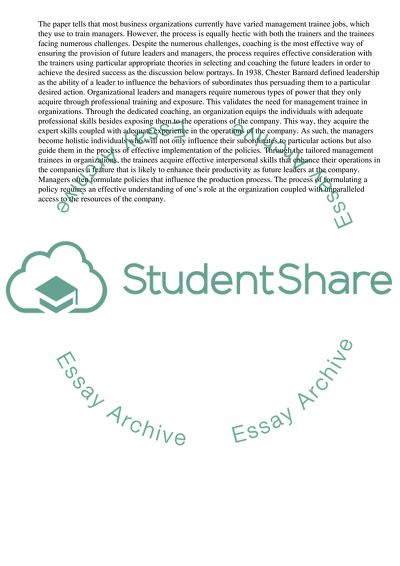Cite this document
(“Leadership and Management Development Essay Example | Topics and Well Written Essays - 1750 words - 1”, n.d.)
Leadership and Management Development Essay Example | Topics and Well Written Essays - 1750 words - 1. Retrieved from https://studentshare.org/business/1645972-leadership-and-management-development
Leadership and Management Development Essay Example | Topics and Well Written Essays - 1750 words - 1. Retrieved from https://studentshare.org/business/1645972-leadership-and-management-development
(Leadership and Management Development Essay Example | Topics and Well Written Essays - 1750 Words - 1)
Leadership and Management Development Essay Example | Topics and Well Written Essays - 1750 Words - 1. https://studentshare.org/business/1645972-leadership-and-management-development.
Leadership and Management Development Essay Example | Topics and Well Written Essays - 1750 Words - 1. https://studentshare.org/business/1645972-leadership-and-management-development.
“Leadership and Management Development Essay Example | Topics and Well Written Essays - 1750 Words - 1”, n.d. https://studentshare.org/business/1645972-leadership-and-management-development.


